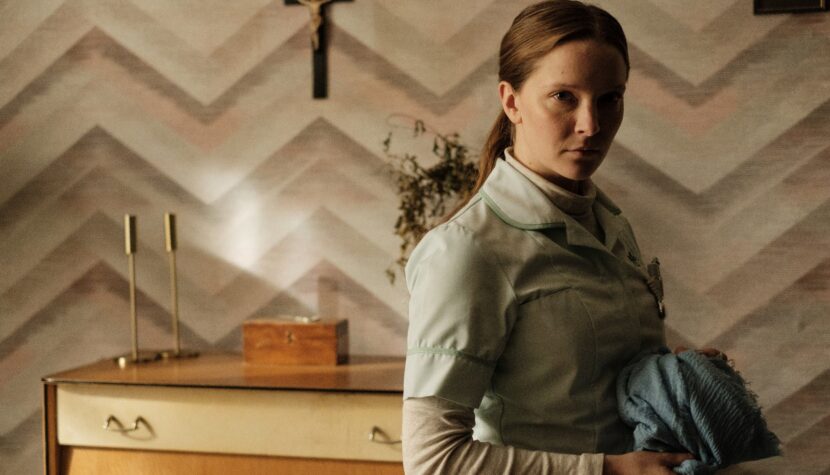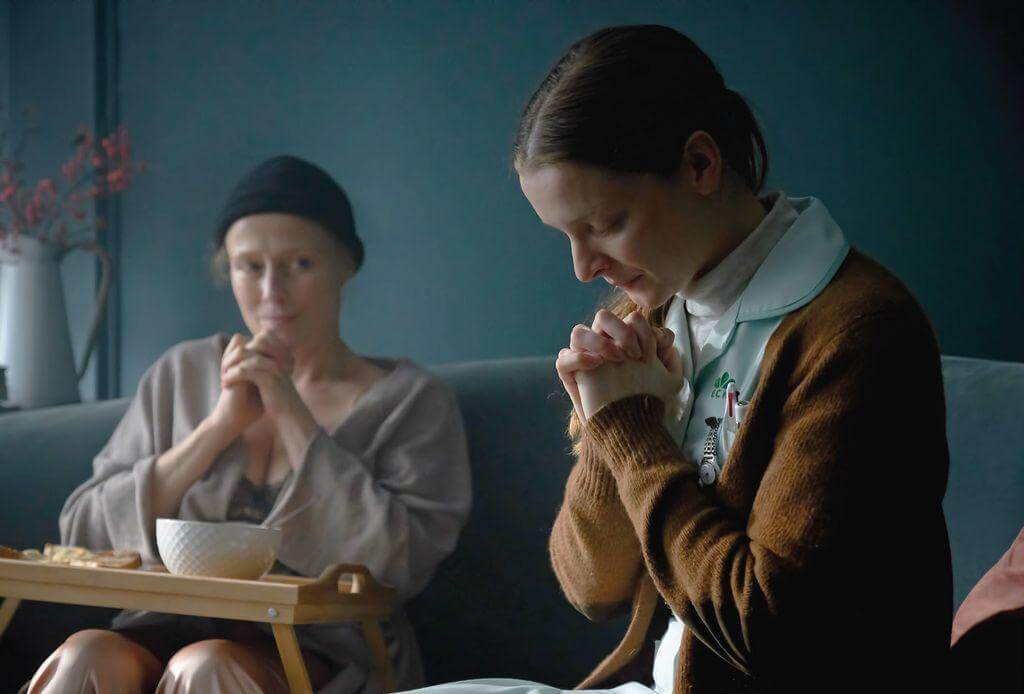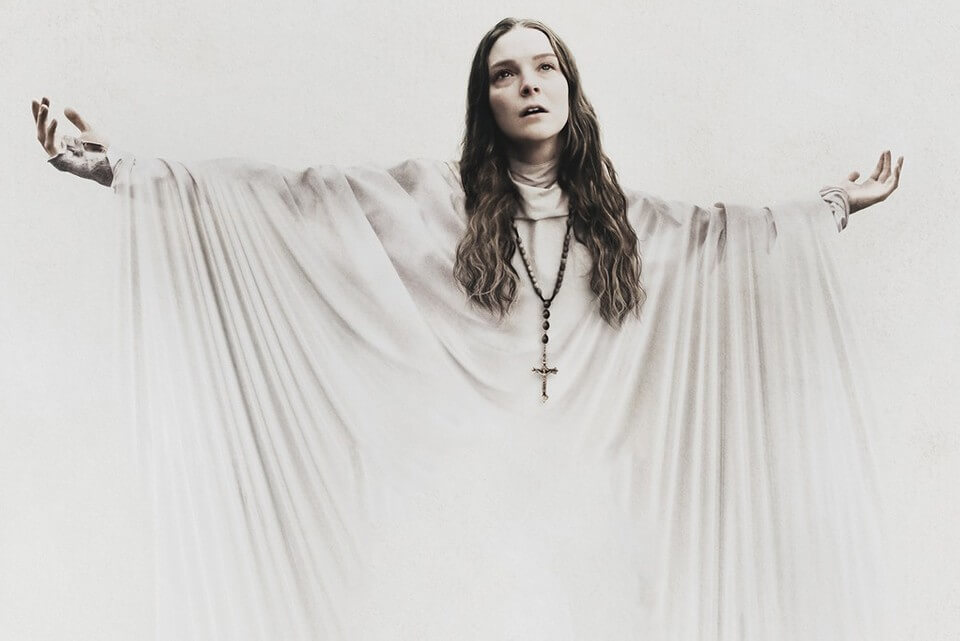SAINT MAUD. Between Faith and Psychosis

Horror has always enjoyed drawing on the theme of faith, especially when perceived in a distorted, almost extreme manner, used to justify all kinds of brutality. Rarely is faith something desirable or necessary to repel evil, although this was the foundation of horror films created right after “Rosemary’s Baby,” led by “The Exorcist” and “The Omen.” More often, horror serves to reveal the dark side of religiosity, showing how easily love for God can be interpreted as hatred towards another person, or the naivety of believers. In Saint Maud, Rose Glass’s full-length debut, for which she also wrote the screenplay, the titular Maud, a devout Catholic, not only believes in God but also feels His presence and hears Him. Knowing the horror tradition, we wait for the young woman to lose all contact with reality and do something that goes beyond Christian teachings.
The main character, played by Morfydd Clark, is a nurse hired to care for the terminally ill Amanda (Jennifer Ehle), a former famous dancer. Maud approaches her task professionally while seeing it as an opportunity to save her patient’s soul. Amanda, confined in her grand house but wanting to enjoy life until the end, does not necessarily share Maud’s views. Maud first removes all alcohol bottles and then forbids Amanda’s much younger lover from visiting her.

Glass focuses entirely on Maud, initially portrayed as a naive girl living almost in asceticism (her rented room resembles a monastic cell), focused solely on her work and divine purpose. What purpose? She doesn’t even know herself. We hear her monologues to God off-screen, questioning her role. We don’t hear the answers, nor does she. At one point, this drives Maud to go out partying, but it only brings her shame and humiliation. These feelings correlate with the Catholic religion, with the fear of the Lord’s wrath, whom one must love but also fear. Clark convincingly portrays this adoration and hesitation, painfully experiencing her loneliness in faith. This makes the titular character far from the stereotypical evil bigot who mindlessly follows the “will” of God.
At the same time, the sympathy we feel for Maud is tinged with doubts about her. In the first minute of the film, Glass shows us a bloody scene with Maud as a potential culprit, but we receive no explanation, only a suggestion that the situation cost her job at the hospital and made her use a different name. This is too vague, causing some confusion and raising a series of questions. Is Maud hiding? Does she still have the credentials to practice nursing? We hear she converted only recently, probably after the “accident” at the hospital. But this means her religiosity was not the cause of the incident. Faith is not the source of her psychosis but appeared later, perhaps as a form of help. Unfortunately, ineffective.
“Saint Maud” is not so much a critique of Catholicism as a depiction of its insufficiency, especially in the modern world. The film is set in a small coastal town that seems to come alive, especially at night. What kind of life? Illuminated by the lights of street establishments, with a beggar asking for change and cursing those who ignore him. In a moment of weakness, Maud performs a hand job for a stranger behind one of the pubs and ends up in bed with another, who recognizes her as a much more fun-loving girl than she is now. Thus, a city of sin, seen not only through the eyes of the main character but also through the lens of Ben Fordesman’s camera, whose framing most closely resembles last year’s “Joker” (coincidentally, as both films premiered within days of each other). In that drama, the city was depicted as a dump, both literally and metaphorically. Here it is similar, and again we have a portrait of a sick person finding fulfillment in creation. However, while Joker became a symbol of his city, this is unlikely for Saint Maud. She is an anomaly in a world where we don’t see her having support from other believers or the church. They are absent. She is alone.

The British film was advertised as a horror, and I started this text with that genre. However, “Saint Maud” is primarily a psychological drama that leans towards horror, not just in theme. Glass doesn’t shy away from typical genre imagery, and the oppressive atmosphere exploits the darkness of this story. There are moments suggesting Maud has real contact with God, and the sanctity in the title takes tangible forms. Nevertheless, I never felt that the protagonist’s connection with divinity might be real. Until the finale. I admit, it scared me and, most importantly, sowed a seed of doubt. Even the last, masterful editing cut made me ponder the meaning of what I watched. The film’s brisk 84-minute runtime leaves questions unanswered that could better illuminate the protagonist’s situation, but the ending more than compensates for the shortcomings of Rose Glass’s impressive debut.

